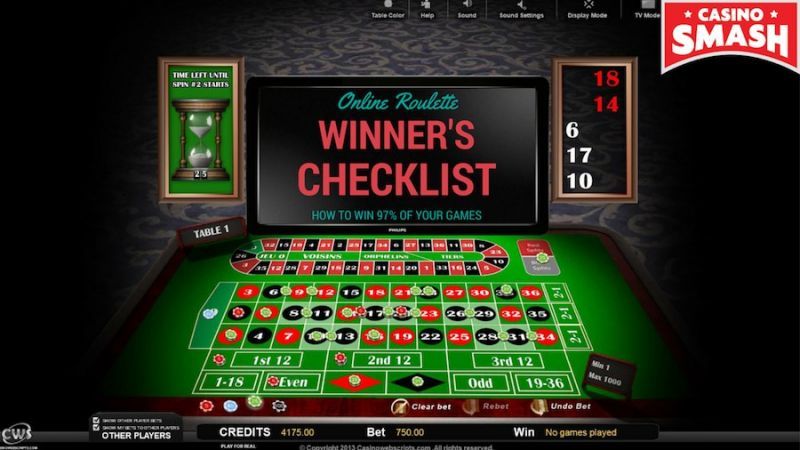How Do I Become A Professional Gambler
Posted : admin On 4/13/2022Steve and Matt Bourie from the American Casino Guide book take a look at what it takes to become a professional gambler. In this two-part series they look at. Becoming a Professional Gambler – Choose Your Discipline We like to say that gambling is a lot like martial arts. You can be a black belt in Muay Thai, and a complete beginner at Jiu-Jitsu. The same goes for gambling – you can be a semi-pro level poker player, but not have the first clue about trading the financial markets for a profit. And then if they do ever end, the tenant will have a year to pay you back, until the year is up and gets extended to another year and so on. Remember, communists don't like private property and would eventually love to cause you to forefit all that you have. The state will then become the landlord and we will all be paying rent to the state.
- How Do I Become A Professional Gambler Youtube
- How Can You Be A Professional Gambler
- How To Become A Professional Gambler Horse Racing
 By Alistair M. Nevius
By Alistair M. NeviusProfessional gamblers are treated differently from amateur gamblers for tax purposes because a professional gambler is viewed as engaged in the trade or business of gambling. The professional gambler reports gambling winnings and losses for federal purposes on Schedule C, Profit or Loss From Business. To compute his or her business income, the professional gambler may net all wagering activity but cannot report an overall wagering loss. In addition, the taxpayer may deduct 'ordinary and necessary' business expenses (expenses other than wagers) incurred in connection with the business.
Whether a gambler is an amateur or a professional for tax purposes is based on the 'facts and circumstances.' In Groetzinger, 480 U.S. 23 (1987), the Supreme Court established the professional gambler standard: 'If one's gambling activity is pursued full time, in good faith, and with regularity, to the production of income for a livelihood, and is not a mere hobby, it is a trade or business.' The burden is on the gambler to prove this status.
In addition to applying the standard established in Groetzinger, courts sometimes apply the following nonexhaustive nine-factor test in Regs. Sec. 1.183-2(b)(1) used to determine intent to make a profit under the hobby loss rules to decide whether a taxpayer is a professional gambler:
- The manner in which the taxpayer carries on the activity;
- The expertise of the taxpayer or his advisers;
- The time and effort the taxpayer expended in carrying on the activity;
- An expectation that assets used in the activity may appreciate in value;
- The taxpayer's success in carrying on other similar or dissimilar activities;
- The taxpayer's history of income or losses with respect to the activity;
- The amount of occasional profits, if any, that are earned;
- The financial status of the taxpayer; and
- Elements of personal pleasure or recreation.
What if a professional gambler's 'ordinary and necessary' business expenses exceed the net gambling winnings for the year? In Mayo, 136 T.C. 81 (2011), the court held the limitation on deducting gambling losses does not apply to ordinary and necessary business expenses incurred in connection with the trade or business of gambling. Therefore, a professional gambler may report a business loss, which may be applied against other income from the year.
LIMITATIONS ON LOSS DEDUCTIONS
Some states do not permit amateur gamblers to deduct gambling losses as an itemized deduction at all. These states include Connecticut, Illinois, Indiana, Kansas, Massachusetts, Michigan, North Carolina, Ohio, Rhode Island, West Virginia, and Wisconsin. A taxpayer who has $50,000 of gambling winnings and $50,000 of gambling losses in Wisconsin for a tax year, for example, must pay Wisconsin income tax on the $50,000 of gambling winnings despite breaking even from gambling for the year.
Because professional gamblers may deduct gambling losses for state income tax purposes, some state tax agencies aggressively challenge a taxpayer's professional gambler status. A taxpayer whose professional gambler status is disallowed could face a particularly egregious state income tax deficiency if the taxpayer reported on Schedule C the total of Forms W-2G, Certain Gambling Winnings, instead of using the session method under Notice 2015-21. In this situation, the state may be willing to consider adjusting the assessment based on the session method if the taxpayer provides sufficient documentation.

For a detailed discussion of the issues in this area, see 'Tax Clinic: Taxation of Gambling,' by Brad Polizzano, J.D., LL.M., in the October 2016 issue of The Tax Adviser.
—Alistair M. Nevius, editor-in-chief, The Tax Adviser

The Tax Adviser is the AICPA's monthly journal of tax planning, trends, and techniques.
Also in the October issue:
- An analysis of executive compensation clawbacks.
- An update on recent developments in estate planning.
- A look at revisions to Forms 1042-S and W-8BEN-E.
How Do I Become A Professional Gambler Youtube
AICPA members can subscribe to The Tax Adviser for a discounted price of $85 per year. Tax Section members can subscribe for a discounted price of $30 per year.
For tax purposes, it is important for those who engage in frequent gambling to be able to distinguish between a professional gambler and a casual gambler.
WHAT IS THE DIFFERENCE IN TAX TREATMENT BETWEEN A PROFESSIONAL GAMBLER AND A CASUAL GAMBLER?
Professional gamblers can take advantage of certain tax benefits that are not available to casual gamblers and have the option of deducting their business expenses in some circumstances. Casual gamblers, on the other hand, are at a tax disadvantage since they are required to report their gambling winnings as income but cannot deduct their gambling losses to the extent of the winnings.

If you gamble frequently and have questions or concerns about how your gambling status may affect your tax liability and benefits, one of our experienced tax attorneys at the Kridel Law Group can help.
FACTORS USED IN DETERMINING PROFESSIONAL GAMBLER STATUS
There are several factors that the Courts have developed to identify and distinguish whether a person is considered a professional gambler or a casual gambler. One of the most hotly debated factors in previous cases has been the issue of “profit motive,” or whether the gambler intended to make a profit. The non-exclusive list of factors include:
- Whether the taxpayer conducted the gambling in a businesslike manner, including keeping books and records to track income and expenses;
- The level of expertise the taxpayer has developed over time, and whether he or she consults experts or attends educational courses about gambling;
- The time and effort expended by the taxpayer in carrying on gambling activities;
- The expectation that assets used in the activity may increase in value (usually not applicable to gambling activities, since cash is usually the asset involved in gambling);
- The taxpayer’s time, attention, and success devoted to other activities not related to gambling;
- The taxpayer’s history of income or losses with respect to his or her gambling activities;
- The amount of occasional profits from the taxpayer’s gambling activities;
- The financial status of the taxpayer, including whether he or she makes a living through other endeavors; and,
- Whether elements of personal pleasure or recreation are present.
How Can You Be A Professional Gambler
CONSULT AN EXPERIENCED TAX ATTORNEY IN NEW JERSEY AND NEW YORK

How To Become A Professional Gambler Horse Racing
New Jersey is home to many popular gambling attractions and, of course, Atlantic City. Our tax attorneys in New Jersey and New York have had extensive success in helping many clients establish their status as a professional gambler. Contact us today at (973) 470-0800 or law@kridel.com to schedule a consultation with an attorney.